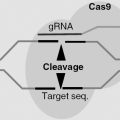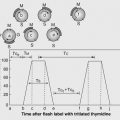29
RADIOGENOMICS
MOHAMED E. ABAZEED
Question 1
What is radiogenomics?
Question 3
What is the rationale for the genetic basis for the variation in normal tissue and tumor radiosensitivity?
Question 1 What is radiogenomics?
Answer 1
Radiogenomics refers to the study of genetic variation associated with normal tissue toxicity and tumor response after radiation therapy (RT). The goal is to measure associations between the genetic content of patients’ germline and tumor DNA and normal tissue toxicity and tumor response, respectively. This could permit the prediction of radiation-related toxicity and/or the likelihood of tumor response prior to treatment delivery.
Andreassen CN, Schack LM, Laursen LV, Alsner J. Radiogenomics – current status, challenges and future directions. Cancer Lett, (2016). doi: 10.1016/j.canlet.2016.01.035.
Yard BD, Adams DJ, Chie EK, et al. A genetic basis for the variation in the vulnerability of cancer to DNA damage. Nat Commun. 2016;7:11428.
Question 3 What is the rationale for the genetic basis for the variation in normal tissue and tumor radiosensitivity?
Answer 3
There are significant differences in sequence alterations in the genome of patients and their tumors. The observation that there is significant heterogeneity in normal tissue and tumor radiosensitivity and this variation appears to be characterized by a continuous variable rather than falling into distinct bins of response strongly suggests a polygenetic basis for variation in normal tissue and tumor radiosensitivity. Moreover, there has been direct evidence that tumors can respond predictably to ionizing radiation based on their genetic content.
Andreassen CN. Can risk of radiotherapy-induced normal tissue complications be predicted from genetic profiles?. Acta oncologica. 2005;44(8):801–815.
Yard BD, et al. A genetic basis for the variation in the vulnerability of cancer to DNA damage. Nat Commun 7, 11428 (2016).
Stay updated, free articles. Join our Telegram channel

Full access? Get Clinical Tree






